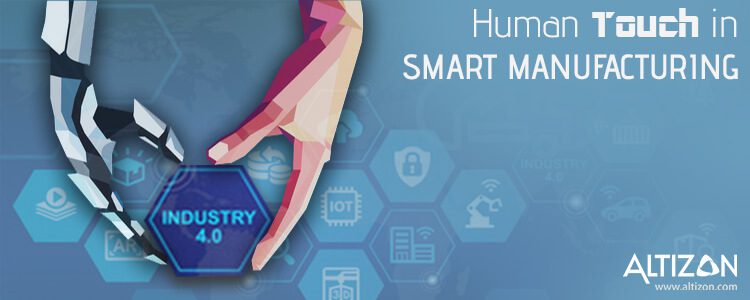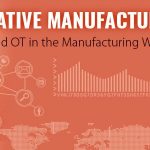The Importance of Human Touch in Smart Manufacturing

Smart Manufacturing – an Industry 4.0 revolution that will do away with repetitive tasks by enabling more intelligent decision-making roles with smart data support.
May 1st is celebrated as International Workers Day! As the technology is hugely influencing our lives and with Industrial IoT, a new wiz tech increasingly influencing the manufacturing world, the human workforce at factories may feel scared of the changes coming in. Is this new technology here to replace workforce? Will it make people redundant? These and many such questions may pressure your mind.
Just relax! J.Birch (TechnoloJenni), a technology blogger from the UK has penned down her thoughts on the importance of Human Touch in Smart Manufacturing.
NOTE: The views expressed here are those of the authors and do not necessarily represent or reflect the views of Altizon.
HIGHLIGHTS:
- Industry focus on ‘Digital Transformation’ vs. the value of ‘Human Element’
- The trigger of Automation as a result of high demands of production and newer & cheaper technologies.
- Automation Not a Threat: An opportunity for workers to develop their skill set, increase output, and improve industrial processes.
Digital transformation in manufacturing are about leveraging advanced technology to improve how a company operates. But, as the manufacturing industry focuses on digital transformation it must not forget the value of the ‘human element’.
Concerns about the impact of technology were raised by Deloitte in an article that stated over 33% of the jobs in the UK are at risk of being replaced by automation in the next two decades. From the transportation industry to retail, automation is now taking the world by storm. Even restaurants around the world are now using iPads to streamline the process of taking orders and giving out receipts to customers.
Why Automation Is An Opportunity, Not A Threat
Automation was originally looked at as a solution to solving the fragility of the current manufacturing process. High demands in production, especially by tech companies, are in place, and production leader China can’t keep up. As a solution to the current problem, automation is being pushed as a vital upgrade to the increasingly competitive and ruthless manufacturing business.
As newer technologies become cheaper, the benefit of machine-operated automation becomes very attractive, and the need for such tools turned out to be a critical advantage to businesses. However, as more and more processes are becoming automated, people are getting concerned about “the rise of the machines” as many are worrying that workers will get replaced by equipment across the board at this rate.
Despite the ongoing worry of automation, heads of IT companies are skeptical about a complete takeover. According to Sandeep Kumar, Vice President and Head of the Business Consulting Group at ITC Infotech, automation may be crucial to the future of the industry but humans will never be replaced.
For example, self-driving cars are looking to replace human drivers on the road. However, cab, train, and bus drivers shouldn’t be afraid of losing their jobs because machines will never be able to react to human expressions and emotions, at least not at the moment. In an article published by Telogis, it was discussed that the biggest problem that is currently faced by the autonomous industry is ‘non-verbal communication‘. This means that eye contact, hand gestures, and other human emotions are foreign to machines, and driverless cars aren’t fully equipped to deal with these variables on the road. It will take many more years to perfect driverless technology, as human emotions and actions get in the way of utopia.
Rising of the machines
Even if machines can successfully incorporate and calculate human emotions, people would still be integral to supporting technologies. Apart from the need to maintain them, not everyone can afford the costs of automation, especially when integrated into machines that perform manual labor. Everyday gadgets like mobile phones may be cheap but the conceptualization, construction, production, and actual implementation of labor machines takes a lot of investment. When big machines break down, they are difficult and costly to replace. Humans only need rest and the occasional medication to get better and start working again.
Despite the advancements in technology, humans will always have a place in society. So instead of completely replacing humans, what the supply-chain technology will do is to move human roles away from doing tedious, repetitive tasks to more intelligent decision-making roles to enable smart data support. Instead of seeing automation as a threat, humans should see it as an improvement that gives the industry better processes, increased output and the opportunity for workers to develop their skillset.



